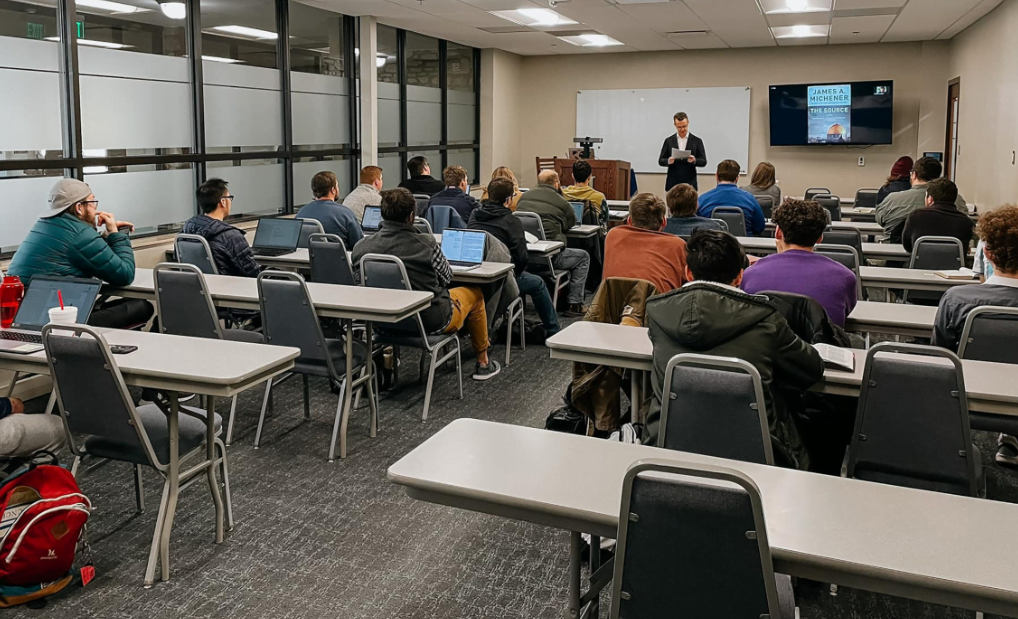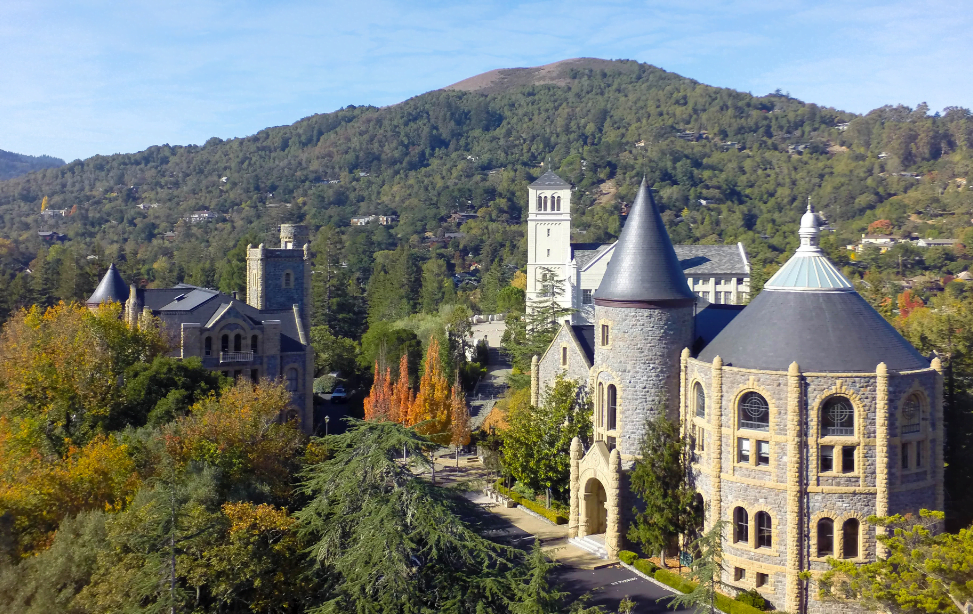Theological Seminaries in the United States, a nation of diverse beliefs and religious practices, is home to a vast and vibrant landscape of theological seminaries. These institutions, deeply rooted in tradition, are dedicated to the rigorous study of theology and the preparation of individuals for a wide array of faith-based vocations. As we delve into this comprehensive exploration, we will uncover the profound role that theological seminaries play in shaping faith leaders, their communities, and the future of religious traditions in the U.S.
Table of Contents
- 1 Theological Seminaries in the United States
- 1.1 Methodology for Rating and Ranking
- 1.2 1. Southeastern Baptist Theological Seminary (Wake Forest, North Carolina)
- 1.3 2. Asbury Theological Seminary (Wilmore, Kentucky)
- 1.4 3. Southern Baptist Theological Seminary (Louisville, Kentucky)
- 1.5 4. Denver Seminary (Littleton, Colorado)
- 1.6 5. Moody Theological Seminary (Chicago, Illinois)
- 2 The Historical Significance of Theological Seminaries
- 3 Diverse Faith Traditions
- 4 Academic Excellence and Spiritual Growth
- 5 Interdisciplinary Learning
- 6 Theological Seminaries and Social Impact
- 7 Challenges and Adaptation
Theological Seminaries in the United States
There are many theological seminaries in the United States, representing a wide range of denominations and theological traditions. Here are a few of the most well-known seminaries:
- Princeton Theological Seminary (Princeton, New Jersey)
- Harvard Divinity School (Cambridge, Massachusetts)
- Yale Divinity School (New Haven, Connecticut)
- Duke Divinity School (Durham, North Carolina)
- Vanderbilt Divinity School (Nashville, Tennessee)
- Union Theological Seminary (New York City, New York)
- Luther Seminary (St. Paul, Minnesota)
- Southern Baptist Theological Seminary (Louisville, Kentucky)
- Fuller Theological Seminary (Pasadena, California)
- Dallas Theological Seminary (Dallas, Texas)
- Wheaton College Graduate School (Wheaton, Illinois)
- Gordon-Conwell Theological Seminary (South Hamilton, Massachusetts)
These seminaries offer a variety of graduate degrees in theology, including Master of Divinity (M.Div.), Master of Arts in Religion (M.A.R.), and Doctor of Philosophy (Ph.D.) degrees. They also offer certificate programs and other non-degree programs.
Each year, nearly 100,000 students embark on a profound journey by enrolling in theological seminaries and divinity schools across the United States. However, unlike traditional colleges and universities, there are few comprehensive lists that highlight the best theological seminaries and why they excel. In this ranking, we aim to illuminate the top theological seminaries in the United States, shedding light on what sets them apart.
Methodology for Rating and Ranking
To compile our ranking of the best theological seminaries in America, we began with a list of over 50 institutions. We then devised a comprehensive point system to identify the top 30 seminaries, considering various factors such as program costs, accreditations, and other essential criteria.
Program Costs
- Under $90,000 — 1 point
- Under $80,000 — 2 points
- Under $70,000 — 3 points
- Under $60,000 — 4 points
- Under $50,000 — 5 points
- Under $40,000 — 6 points
- Under $30,000 — 7 points
Accreditations and Associations
- Each National Accrediting Body — 1 point
- Each Regional Accrediting Body — 1 point
- Each Applicable Association — 1 point
Other Considerations
- Full Degree Programs Available Online — 1 point
- Placement Services Available — 1 point
To break ties and determine the final ranking, a holistic approach was applied. Thus, not all seminaries are listed in descending order of points. The ranking encompasses a variety of theological institutions, catering to different faith traditions and beliefs.
1. Southeastern Baptist Theological Seminary (Wake Forest, North Carolina)
- Points: 11
- Estimated Cost of Three-Year Master of Divinity: $24,624 (higher for non-Southern Baptists)
- Top-ranked Southern Baptist seminary known for academic rigor and freedom of thought.
2. Asbury Theological Seminary (Wilmore, Kentucky)
- Points: 11
- Estimated Cost of Three-Year Master of Divinity: $47,880
- Welcoming students from diverse denominations, offering a well-rounded theological education.
3. Southern Baptist Theological Seminary (Louisville, Kentucky)
- Points: 11
- Estimated Cost of Three-Year Master of Divinity: $24,200 (higher for non-Southern Baptists)
- The largest seminary in the U.S., known for upholding conservative theology and biblical principles.
4. Denver Seminary (Littleton, Colorado)
- Points: 11
- Estimated Cost of Three-Year Master of Divinity: $48,750
- Emphasizes a “vibrant evangelicalism” and practical training, with online degree programs available.
5. Moody Theological Seminary (Chicago, Illinois)
- Points: 11
- Estimated Cost of Three-Year Master of Divinity: $27,000
- A conservative, Biblically literal seminary with a strong online program.
This comprehensive ranking of the best theological seminaries provides valuable insights into the diverse options available to students pursuing theological education in the United States. Theological seminaries play a pivotal role in shaping future religious leaders, and this ranking serves as a guide for those seeking to embark on a faith-filled educational journey.
In addition to the seminaries listed above, there are many other theological seminaries in the United States. To find a seminary that is right for you, I recommend that you consider the following factors:
- Denomination or theological tradition: Do you want to attend a seminary that is affiliated with a particular denomination or theological tradition?
- Location: Do you want to attend a seminary in a particular region of the country or in a particular type of environment (e.g., urban, rural)?
- Tuition and financial aid: How much does the seminary cost, and what financial aid options are available?
- Academic programs: What academic programs does the seminary offer?
- Faculty: Who are the seminary’s faculty members, and what are their areas of expertise?
I recommend that you visit several different seminaries before making a decision. You can also talk to your pastor or other Christian leaders for advice.
The Historical Significance of Theological Seminaries

The roots of theological seminaries in the United States run deep, with many dating back to the earliest days of American history. These institutions have played a pivotal role in nurturing the religious diversity that characterizes the nation. Established by various Christian denominations, theological seminaries have been instrumental in training clergy, theologians, and scholars who have contributed significantly to American society, culture, and religious thought.
Diverse Faith Traditions
The United States is a religious tapestry, featuring a kaleidoscope of faith traditions. Theological seminaries reflect this rich tapestry by catering to a broad spectrum of beliefs. While Christian seminaries are abundant, there are also institutions dedicated to other faiths, including Judaism, Islam, Buddhism, and Hinduism, demonstrating the commitment to interfaith dialogue and cooperation.
Academic Excellence and Spiritual Growth
Theological seminaries offer academic programs that go beyond religious studies. They provide training in areas such as divinity, ministry, ethics, and theology, preparing graduates for roles as clergy, educators, counselors, and scholars. The academic rigor and spiritual formation at these institutions equip individuals with the knowledge and values needed to serve their respective faith communities.
Interdisciplinary Learning
Modern theological seminaries have evolved to incorporate interdisciplinary approaches to theology. They draw from various fields, including philosophy, history, ethics, and psychology, to offer a comprehensive education that addresses the complex challenges of the contemporary world. Graduates are not only deeply grounded in their faith but are also equipped with the tools to navigate complex moral and social issues.
Theological Seminaries and Social Impact
These institutions extend their reach beyond the confines of religious practice, actively engaging in community service, social justice initiatives, and interfaith dialogue. They are often at the forefront of addressing pressing societal concerns, contributing to a more compassionate and inclusive society.
Challenges and Adaptation
Theological seminaries, like many educational institutions, face challenges in a rapidly changing world. Issues such as declining enrollment, financial sustainability, and adapting to new technologies are areas of concern. Nevertheless, they continue to evolve, exploring innovative methods of instruction and expanding their reach through online education.
Conclusion, Theological seminaries in the United States are more than just centers of theological education; they are crucibles where faith, knowledge, and service converge. These institutions continue to be essential in shaping religious leaders who guide communities and serve as bridges between diverse faith traditions. As the nation and the world face new challenges, theological seminaries are evolving to address them, remaining vital in both spiritual development and the advancement of knowledge. Their role in nurturing faith and knowledge in America is as profound and relevant as ever.


You may like it
Top 7 Best Speech Pathology Programs in 2024
Which University is Best for Cyber Security Courses: A Comprehensive Guide
Top 10 Best Marine Biology PhD Programs 2024
The 50 Top Psychology Programs in 2024: Undergraduate Edition
Scholarships for High School Seniors: Ultimate Guide
Best PA Programs in Wisconsin, How to Get into?